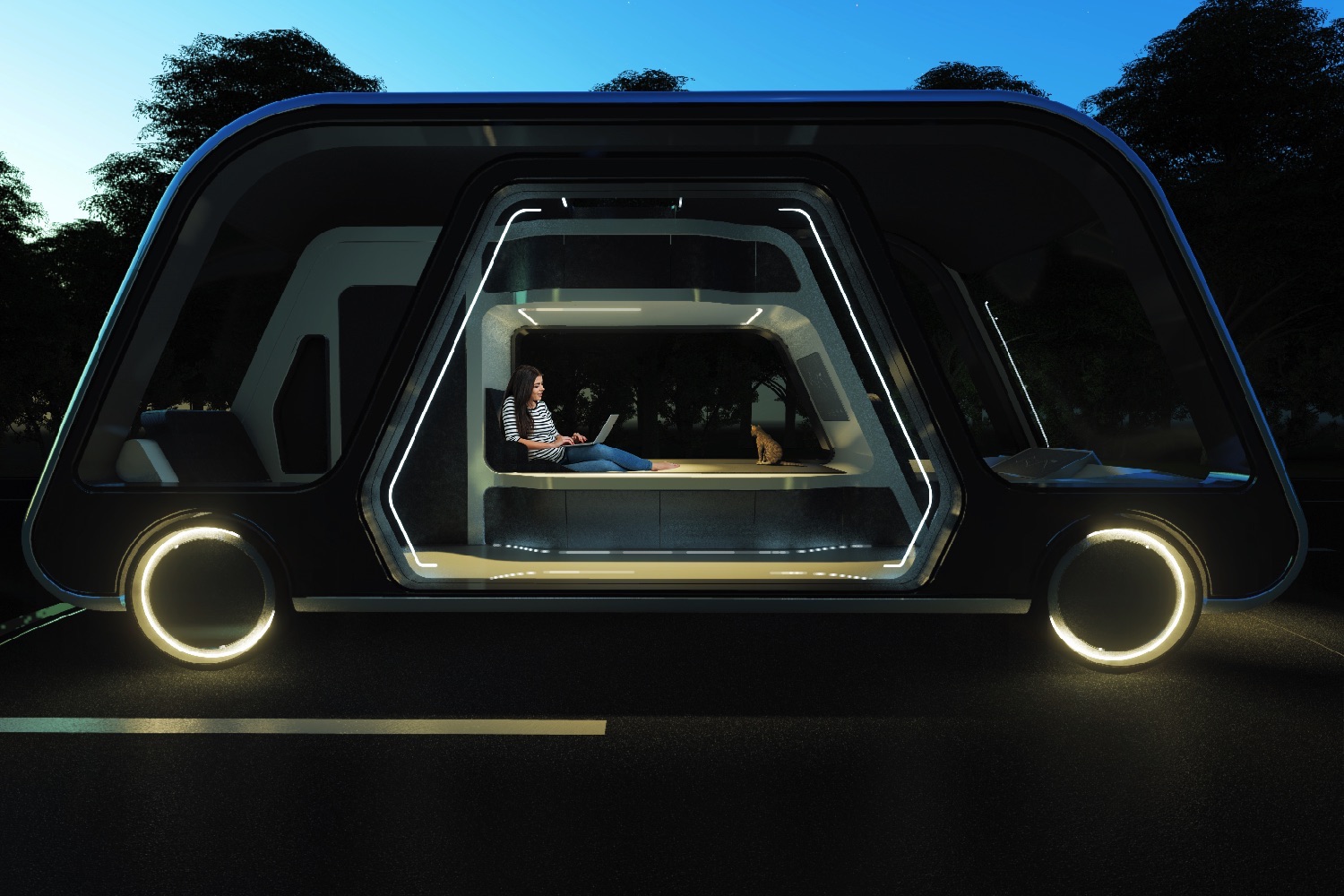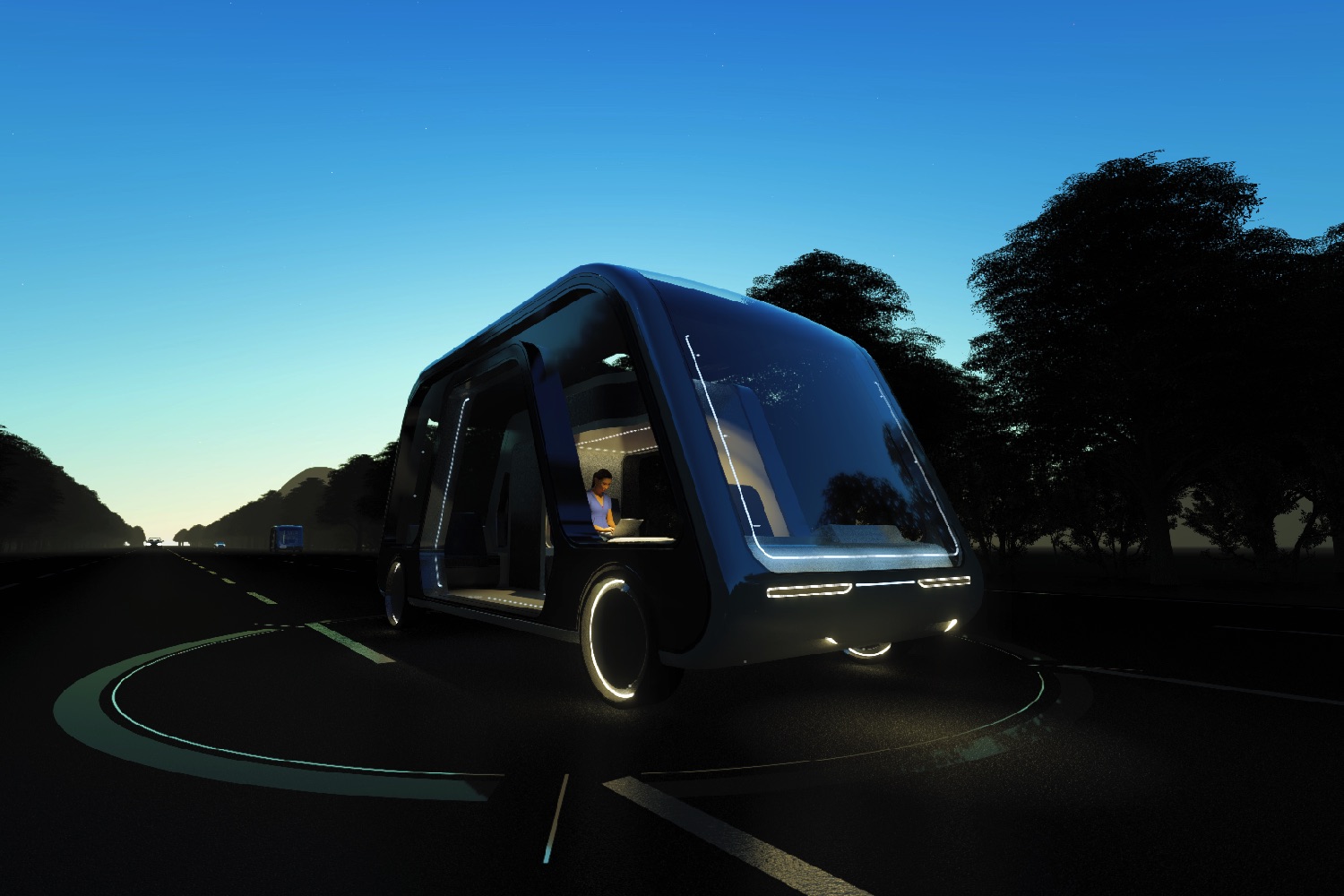A world of self-driving cars is going to give us a whole lot more time, during which we would previously have been behind the wheel, to spend on everything from sending emails and watching Netflix to, well, getting a few extra hours of shut-eye. Focusing on this latter scenario, Toronto-based design studio Aprilli has dreamed up what it calls the “Autonomous Travel Suite,” a kind of self-driving sleeper van that is perhaps best described as a hotel room on wheels. Containing sleeping, working, and washroom facilities, it’s an intriguing (and pretty darn tantalizing) vision of where the next phase of transport may go.
“Last year, my wife was on the job market with a quite crazy travel schedule and was seriously lacking sleep,” Steve Lee, co-founder at Aprilli, told Digital Trends. “At some point, I realized that the travel time in between cities would be extremely valuable time, whether for sleeping or for working. I tried dropping a thin Ikea mattress into the backside of my hatchback vehicle and figured out that it was very cozy and comfortable to sleep in it. This was the moment I realized how mobile interior spaces could have strong potential in the future.”
Sadly, right now, the Autonomous Travel Suite is just a concept — but what a concept. The idea, as Lee describes it, is that a world of autonomous driving will open up a host of new opportunities for “transpitality,” referring to everything from mobile gyms to mobile hotels. In Aprilli’s sci-fi concept, things get taken even further by allowing multiple pods to dock together (like hospitality’s answer to Voltron) to form a giant moving modular structure comprising different rooms.
Will it actually happen? While it won’t be for a while, it certainly doesn’t seem out of the question. After all, the idea of a cashier-less supermarket, a robot bartender, or an automated farm sounded crazy just a few years ago, and now are all realities. Once autonomous vehicles are sufficiently advanced that we could safely fall asleep (or work out) while we’re being driven in one, it’s only logical that hospitality companies will be ready to jump into this new market. Heck, it could even be Aprilli.
“We are currently speaking with auto and hotel industry leaders to accelerate the development of Autonomous Travel Suite,” Lee continued, “Our studio’s internal estimate would be that between 2025-2030 it would be possible to start Autonomous Travel Services between a couple of leading major cities — for example, Los Angeles to San Francisco.”
Editors' Recommendations
- Tesla Autopilot vs. full self-driving: What’s the difference?
- Beleaguered robotaxi startup Cruise lays off quarter of workforce
- Cruise’s robotaxi service suspended by California regulator
- Waymo expands robotaxi service area in San Francisco
- Cruise autonomous vehicle drives over woman just after she was hit by another car




